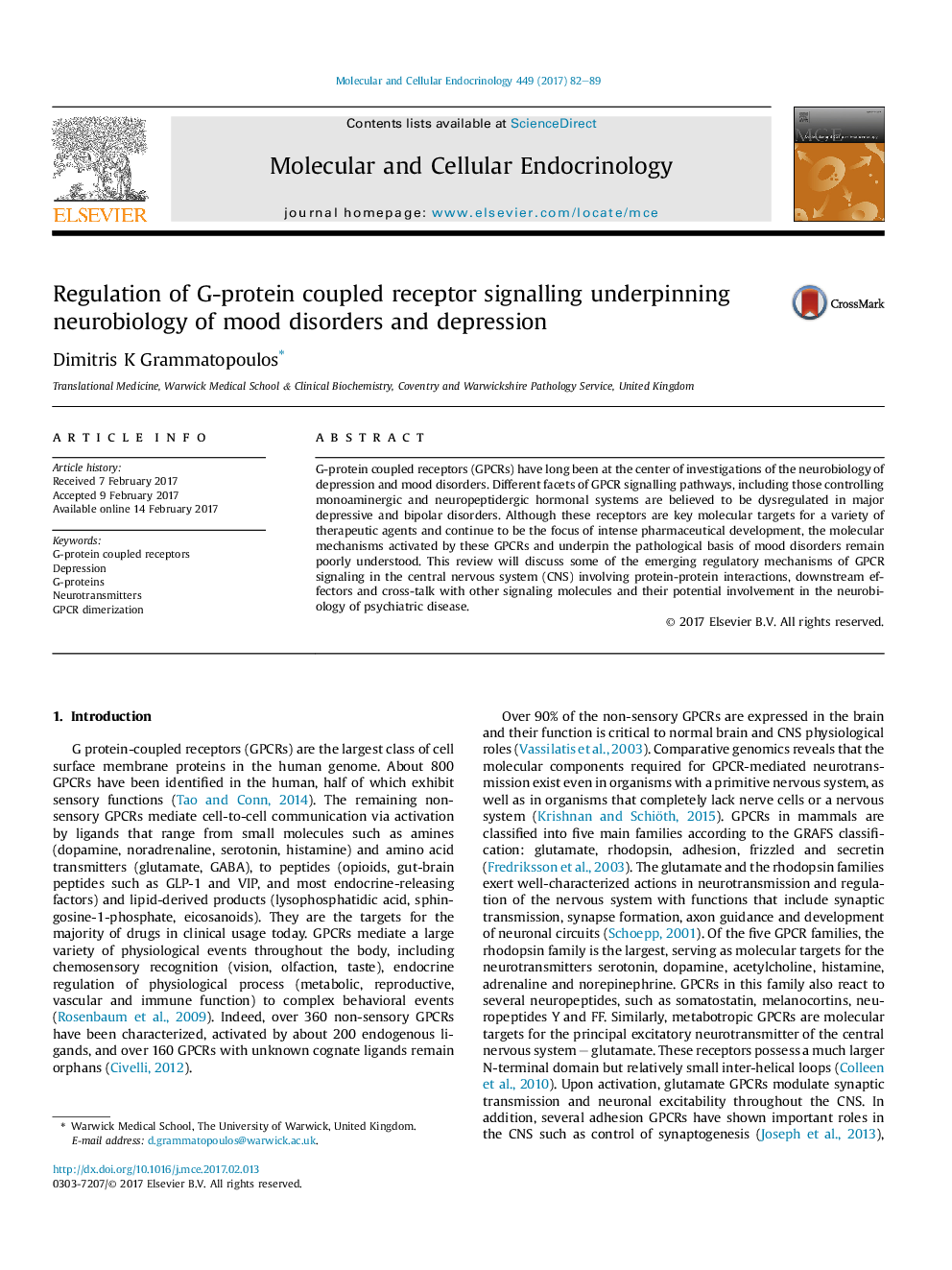| Article ID | Journal | Published Year | Pages | File Type |
|---|---|---|---|---|
| 5534071 | Molecular and Cellular Endocrinology | 2017 | 8 Pages |
â¢GPCRs are involved in the pathogenesis of depression and mood disorders.â¢Oligomerization of GPCRs is now linked with aberrant signaling involved in development of depression.â¢Regulators of GPCR signaling such as RGS, GRK and β-arrestin represent potential therapeutic targets for mood disorders.â¢Tissue specific changes in regulators of GPCR signaling can be captured by parallel changes in circulating blood cells.
G-protein coupled receptors (GPCRs) have long been at the center of investigations of the neurobiology of depression and mood disorders. Different facets of GPCR signalling pathways, including those controlling monoaminergic and neuropeptidergic hormonal systems are believed to be dysregulated in major depressive and bipolar disorders. Although these receptors are key molecular targets for a variety of therapeutic agents and continue to be the focus of intense pharmaceutical development, the molecular mechanisms activated by these GPCRs and underpin the pathological basis of mood disorders remain poorly understood. This review will discuss some of the emerging regulatory mechanisms of GPCR signaling in the central nervous system (CNS) involving protein-protein interactions, downstream effectors and cross-talk with other signaling molecules and their potential involvement in the neurobiology of psychiatric disease.
